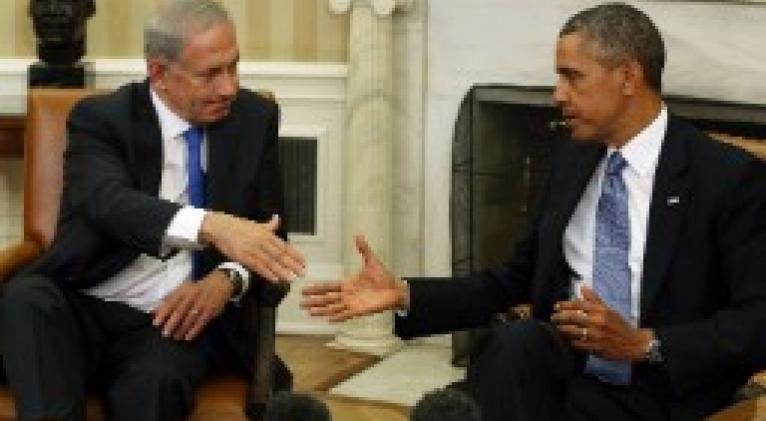Israel suspends defense aid talks with US, awaits outcome of Iran nuclear deal
especiales

The decision was made following a meeting between senior representatives from Israel's Defense Ministry, Foreign Ministry, and Prime Minister's Office, Arutz Sheva reported.
READ MORE: Iran nuclear talks venues hit by $10mn 'state-sponsored' virus – Kaspersky to RT
The freeze will allow Israel to present a new request for defense resources after a deal with Iran has been finalized, according to a senior defense official who confirmed the report.
But other officials have suggested that Tel Aviv may prolong the freeze until a new president is in the White House in 2017, thereby avoiding President Barack Obama, who has repeatedly failed to see eye-to-eye with Israeli Prime Minister Benjamin Netanyahu on a number of issues.
Obama-Netanyahu tensions
Netanyahu has expressed continuous distaste for Obama's Middle East policies, which include mending relations with Iran and a two-state solution to the Israeli-Palestinian deadlock.
Earlier this month, Obama warned that Netanyahu's inconsistent views on Palestine could cost Israel its world “credibility.” He was referring to contradictory comments made about the creation of a Palestinian state before and after March's general election.
In April, Obama turned down callsfrom Netanyahu to make Iran's recognition of the state of Israel part of the deal on Tehran's nuclear program. Instead, the US president said:“There are a whole host of countries in the Middle East that don't yet recognize Israel.”He did, however, assure Tel Aviv that Washington will continue to support and protect the Jewish state.
Three months prior, Netanyahu accepted an invitation from Republicans to speak before US Congress. The move both surprised and enraged Democrats, who said the Israeli delegation broke protocol by not consulting them.
Iran nuclear negotiations
Iran and the P5+1 group – the US, Britain, France, Germany, Russia, and China – are in the midst of negotiations over Tehran's nuclear program, aiming for an agreement by June 30. Any potential deal would result in Iran curbing its nuclear program in exchange for sanctions relief.
Israel has voiced extreme opposition to any deal with Tehran, calling it a “very bad” option, which “would not block Iran's bath to the bomb. It would pave it.” Opponents of the deal are concerned that Iran will not actually comply with its end of the deal after Western sanctions are lifted.
Netanyahu has also stated that a nuclear Iran “will be a hundred times more dangerous, a thousand times more dangerous and more destructive” than Islamic State.
But Obama has repeatedly defended the nuclear negotiations. In a June interview with Israel's Channel 2 TV, the US president said: "I can, I think, demonstrate, not based on any hope but on facts and evidence and analysis, that the best way to prevent Iran from having a nuclear weapon is a verifiable, tough agreement."
During a May interview with the Atlantic, the president stressed his intentions: “Look, 20 years from now, I’m still going to be around, God willing. If Iran has a nuclear weapon, it’s my name on this...I think it’s fair to say that in addition to our profound national-security interests, I have a personal interest in locking this down.”
Despite allegations from the West, Iran has repeatedly denied accusations that it is using its nuclear program to develop atomic weapons, instead insisting the program is solely for peaceful purposes.













Add new comment